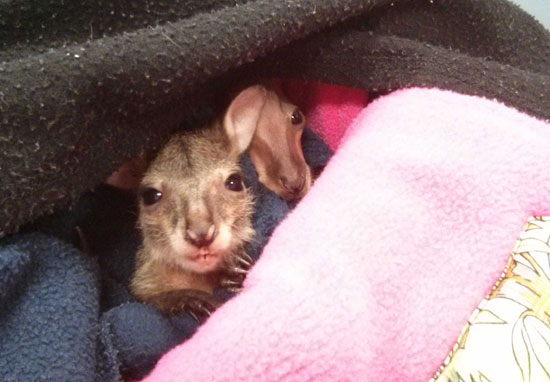Once you caught the animal, you want to transport it to our Wildlife clinic or to a wildlife carer.
If you’re transporting an injured or orphaned animal, remember three important things: temperature, dark, and quiet.
Here are some tips:
- Handle the animal as little and as gently as possible. Rough handling may cause further internal bleeding, more damage to the soft tissues around a fracture, and many other complications. You should also covering it, has a calming effect.
- Make sure the animal is secured and can’t escape.
- Wildlife must never be placed in the boot of a vehicle for transportation, as they can be killed or poisoned by exhaust fumes and may suffer further injury and stress by being thrown around in the moving vehicle.
- The floor in the front seat is a good place, once the animal is secured in a bag, box or pet pack.
- Using a passenger to hold the bag can offer warmth as well as security for the trip.
- If the animal is unfured please provide a heat source if possible, wrap it in a shirt of towel to keep it warm.
- If the animal is overheated, you can offer water or use a wetted towel to lower its temperature.
- Have the radio OFF and keep voices low and to a minimum. Remember you are dealing with a wild animal, not a kitten or puppy used to the presence of humans and which finds our touch or voice soothing.
Ark Aid Wildlife Hospital situated at:
The Ark Animal Hospital
56 Georgina Crescent
Palmerston/ Yarrawonga

